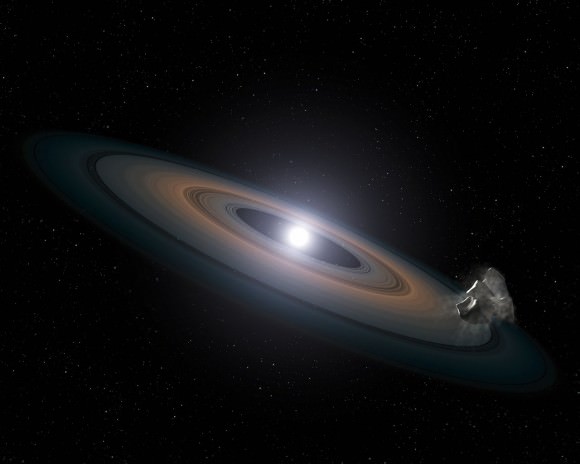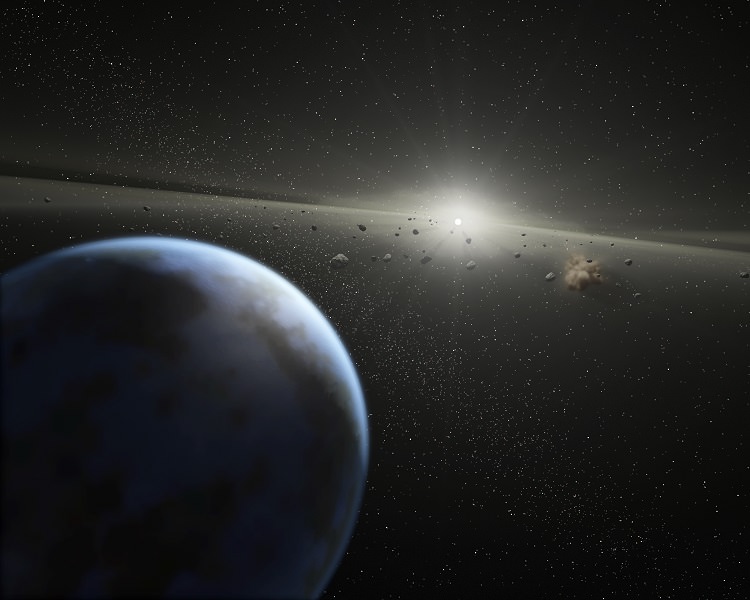What’s with all the metals in the atmosphere of white dwarfs, those things that are corpses of stars like our own Sun? While before scientists had theories about levitating star layers that “polluted” the white dwarfs, new research shows it’s more likely due to rocky material. More specifically, material left over from planet formation.
Researchers surveyed 89 of these objects with the Far Ultraviolet Spectroscopic Explorer, a NASA space telescope which operated from 1999 to 2008. The stars’ spectra was analyzed to see what distinctive wavelengths of elements showed up.
Scientists discovered that in one-third of these stars, the ratio of silicon to carbon material is pretty close to what is seen in rocks, and is much higher than what would be expected in stars. The work implies that only a fraction of stars like our Sun would have terrestrial planets, researchers added.

“The mystery of the composition of these stars is a problem we have been trying to solve for more than 20 years,” stated Martin Barstow of the University of Leicester, who led the research.
“It is exciting to realize that they are swallowing up the leftovers from planetary systems, perhaps like our own, with the prospect that more detailed follow-up work will be able to tell us about the composition of rocky planets orbiting other stars.”
You can read more about the research in the Monthly Notices of the Royal Astronomical Society. The research team includes Barstow’s daughter, Jo, who was doing a summer work placement in Leicester at the time. She is now working at Oxford University in the field of extrasolar planets.
Source: Royal Astronomical Society

